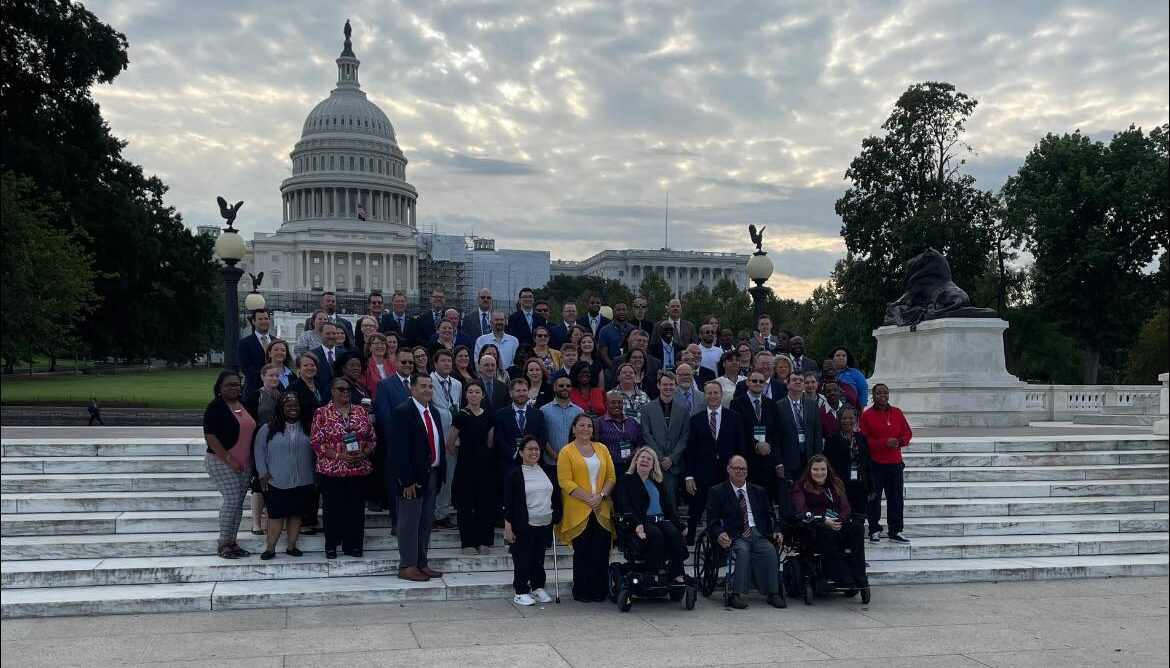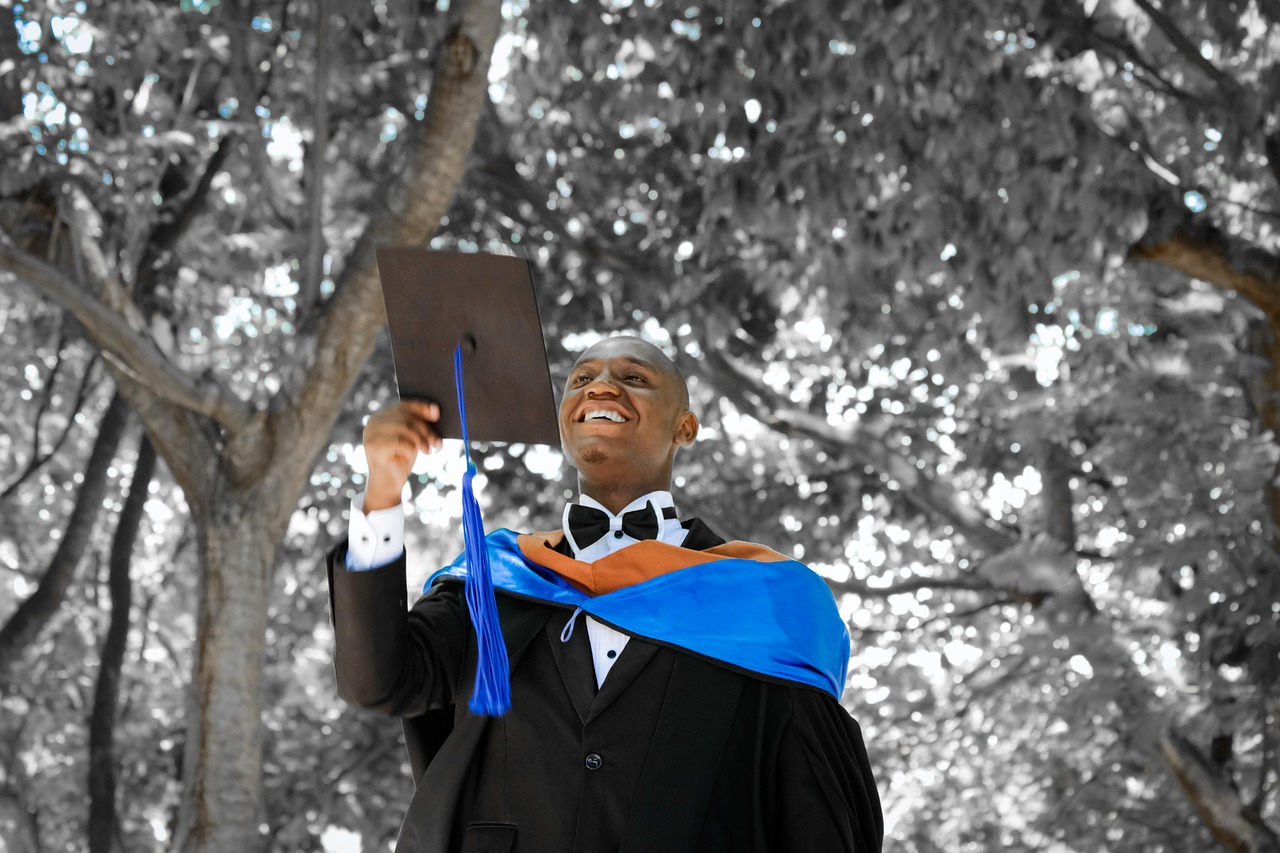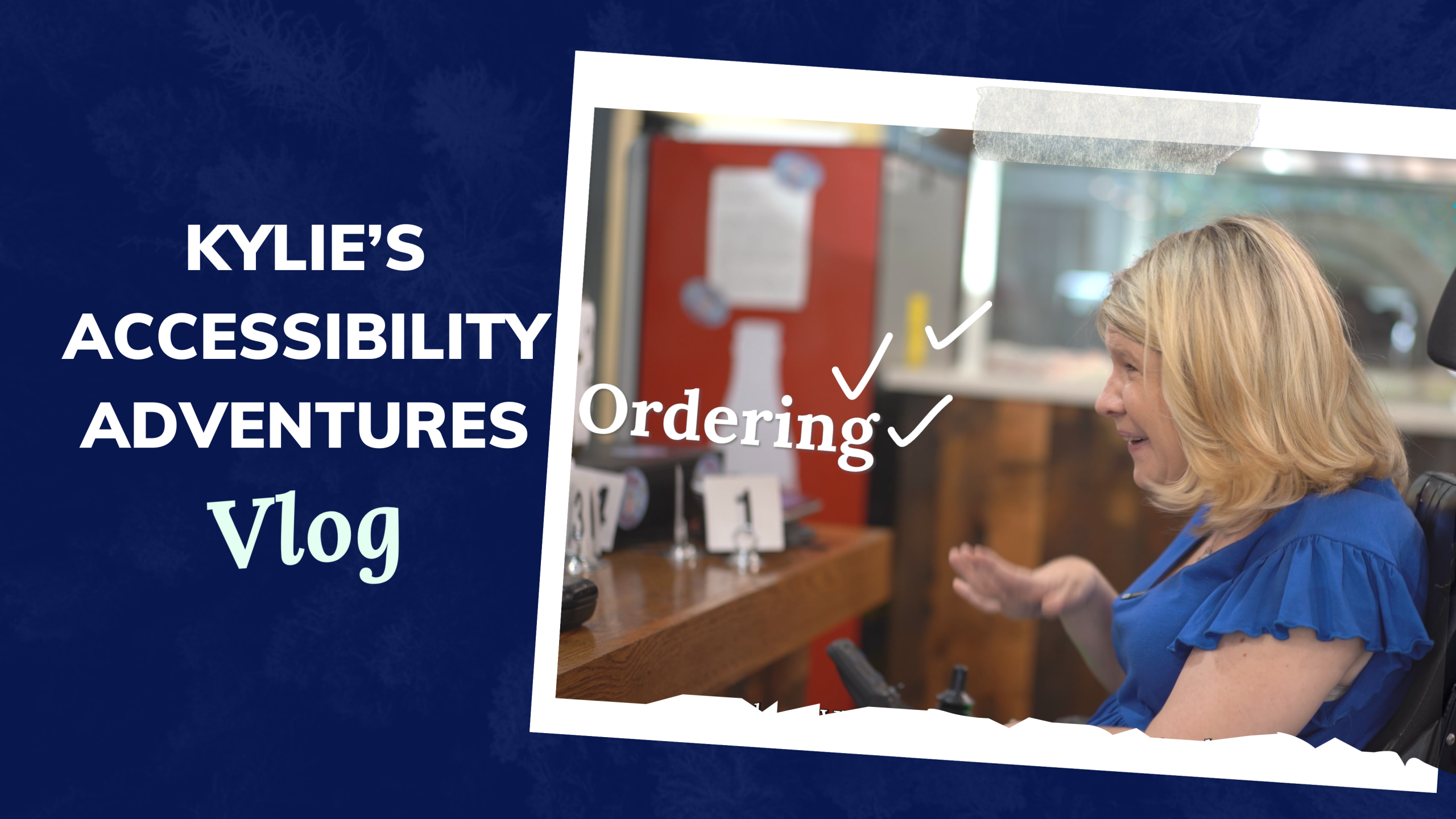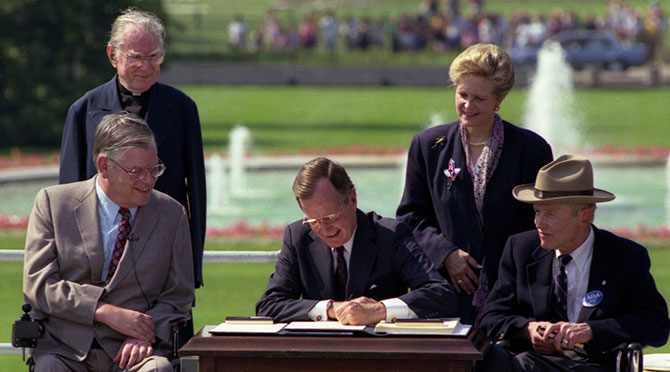We have all heard the expression: “It is not always about what you know but who you know.” Throughout my career as a disability advocate, I have found this to be true. Building meaningful relationships has been a critical factor in my success, and networking helps me foster and maintain those relationships.
What is Networking?
Networking is the ability to meet and connect with new people. It is also the ability to develop and utilize the connections you already made. Networking can happen anytime and in any situation. Still, you must be willing to take the initiative and put yourself out there to make connections.
Barriers to Networking
Networking in your field can sometimes be challenging. It could be even more difficult if you are living with a disability.
Transportation
One significant barrier is trying to find transportation to different events. Sometimes, the events in your career field are far from where you live, so you must make arrangements with someone or use public transportation to get there. The problem is, if you, like me, are a wheelchair user, you need a specific vehicle, which is not readily available every time you need it. It is hard for me to access and use public transportation on my own, so when I go to a networking event, I must rely on my parents or caregivers to take me with my accessible van. Most of the time, the events in the disability community take place in downtown Atlanta, about forty minutes from my home in Roswell. It can be challenging to get into the city and find accessible parking. If one of my caregivers cannot take me, my parents often must take off from work to get me where I need to go. The most challenging event for me to attend was the Source America Grassroots Advocacy Conference in Washington, D.C. It is difficult for me to get around D.C. in my wheelchair. The first time we went to D.C., we flew there. During the week, I had several meetings at the Capitol, and since I did not have my van, we had to use an accessible taxi service. We had to book the taxi 24 hours in advance to arrive at our meetings on time. Even after we booked our ride in advance, the taxi was occasionally late, causing us to be late for our meetings. The second time we went to D.C., we took my accessible van. The van made the trip more manageable, but finding parking or a place where I could be dropped off near the Capitol was still difficult. I think that when people are putting together events and conferences within the disability community, they need to take time to brainstorm more transportation options.
Lack of Confidence
Another challenge to being a successful networker might be a need for more confidence in yourself. It can be extremely nerve-wracking to attend an event and try to meet and have conversations with people who could have a meaningful impact on your career. When I first graduated college, I participated in an advocacy training called Partners in Policymaking. The class was for parents, disability professionals, and self-advocates to gain more training in legislative advocacy. I knew I could make many good connections in the class, but I was nervous to go up and talk to people I did not know. I also felt underqualified because I had just graduated and begun building my advocacy experience. As the training continued, I started talking to people and gaining more self-confidence. It did not matter how much experience I had; people liked me and were generally interested in what I had to say. Over the years, the more events I attended, the less nervous I felt and the more I wanted to engage with others. Even though you may be scared, always remember to be yourself and have confidence that you can make strong connections when the right opportunities present themselves.
Other Barriers
Knowing what to say can also be a barrier to networking. Make sure you do as much research as possible on your field of work to be prepared to engage with others. Also, practice introducing yourself to friends and family. That way, you can have practice conversations with them, and they can provide feedback on what you can improve. Another networking challenge is trying to keep the connections with people you have met. If you feel you have made a strong connection with someone, ask for permission to stay in touch with them and ask for their contact information. Try your best to keep in touch with your connections by emailing them regularly, asking them if you can help with any projects they are working on, and following them on LinkedIn or other social media sites.
How to Build Your Network?
Over the past 12 years, I have had the opportunity to take different advocacy training courses and attend various workshops. During these events, I have met some fantastic people who have impacted my life and career in different ways. I would not have these relationships if I did not try to introduce myself to them and to get to know them. I always start by asking other people questions about their life and work to see if we have anything in common. Finding common ground is essential to building a solid relationship. It can be nerve-racking to start conversations with people you do not know, but the more you get used to networking, the easier it will be. I have also tried to build relationships with many of my co-workers over the years. Knowing the people you work with daily builds team unity and a more positive work environment. One of the most powerful reasons I’ve been able to form strong connections is my sense of humor. Once I get to know others, I can build rapport by joking around with them and being sarcastic. People enjoy talking to me because they know I can take a joke, and I am not afraid to give it right back to them.
The second step in networking is maintaining relationships you have already established. Keeping a relationship requires constant communication. If you meet someone at a conference or event and feel you have made a strong connection with them, get their contact information. After the event, contact them and express how much you enjoyed meeting them. Email or call them periodically to check in to see how they are. It may take time to build these relationships, but it is worth the effort in the long run. Creating and maintaining these relationships aims to build a strong network of people who are there to help and support you throughout your career and life.
Below, I share the stories of three influential connections and their impact on my career.
Establishing Rapport – Real-Life Examples
Scott Crawford
I met Scott when I started working at Great Prospects in 2011. He had been a job coach in the disability community for several years. Scott had a great understanding of how to communicate with individuals with disabilities. We taught advocacy, job, and life skills classes at Great Prospects together. He always treated me like an equal and listened to all my ideas. Scott was the one who taught me how to lead an effective class on any topic. He showed me how to create individualized lesson plans that fit the needs of each student. Scott encouraged me to use my disability as an advantage and that adding personal experiences and humor into my teaching would help me engage more with my audience. At the beginning of my career, Scott encouraged me by saying, “You have such a unique perspective in how you perceive things. You see the world differently than most of the population does. You have more challenges, so you’re uniquely qualified to tell people how this (everything) works for someone with a disability”. Scott helped me gain the confidence I needed to become a strong self-advocate. While working together, we realized we had much in common and became good friends. Scott has always supported me throughout my career and is still one of my best friends. Scott would say, “We kind of teamed up like Abbott and Costello, and we could finish each other’s sentences and finish each other’s jokes.” Sometimes, it is a little scary how well Scott knows me, but I am grateful to have a friend who truly understands me and supports my career.
Mark Crenshaw
I met Mark Crenshaw while taking the Georgia Leadership Education in Neurodevelopmental and Related Disabilities (GaLEND). Mark is the director of interdisciplinary training at the Center for Leadership in Disability at Georgia State University (GSU). Mark was very influential in my development as an advocate. When I first heard about GaLEND, I thought it would be a great way to gain more self-advocacy skills and learn what disability advocacy organizations do in Georgia. I also looked forward to being part of an interdisciplinary training team and learning from the other professionals in my cohort. As a recent 23-year-old college graduate, I was honored to be in a room with doctors, lawyers, psychologists, physicians, occupational and speech therapists, and parents of people with disabilities. I knew I had much to learn from them, but I also knew I had much to offer them. About three weeks into the program, Mark asked me why I was so quiet during group discussions. I said that I was taking all the information in and wanted to hear what the experts in the cohort had to say on different topics. He told me that I was missing the entire point of LEND. Mark said you are the person living with a disability, meaning you are the expert in the room. If the other cohort members don’t hear from you and learn from your experiences, then the LEND process will not work. This conversation has had a profound impact on my life and career. I knew that people with disabilities must become experts in their lives and should always actively participate in decision-making that impacts them. To this day, when teaching other self-advocates, I am reminded of my life-changing conversation with Mark. I tell my students how valuable their voices are and that no one will understand their lives better than they do.
Rick Sebastian
In 2019, my company, the Bobby Dodd Institute, selected me to represent them at the SourceAmerica Grassroots Advocacy Conference in Washington, DC. The conference invites self-advocates from all over the country to advocate for employment issues. I was so excited to be able to advocate on Capitol Hill. During the week in D.C., the advocates participated in hands-on self-advocacy training sessions. Rick Sebastian led the sessions. Rick is the President of the Kennedy Center in Connecticut and is a leader in the disability community. During the advocacy training, I was fearless in speaking up and sharing my thoughts and ideas. Each advocate got the chance to tell what they did for work.
Rick seemed very impressed when I explained that I created and taught a self-advocacy program. He asked me to stay after the session so he could hear more about my program. The conversation went well, and we found we had a lot of common interests, such as music and football. After the conference was over, we stayed in touch by email. When the next SourceAmerica conference came up, Rick asked me to co-teach the self-advocacy session with him online. I was honored to have the opportunity to teach with him and learn to be a better facilitator. He is a great contact, and I am so glad we have kept in touch over the years. In 2023, I returned to the conference even more confident. This time, I was invited to be a keynote speaker. You can read about this journey in my previous post, Navigating the Benefits Cliff: The Challenges of Working While Having a Disability.
Networking is essential to help you meet new people and build lasting relationships. I often say I collect people because once I build a relationship, I try my best to keep it going and make a significant effort to stay in touch with everyone I meet. My strongest connections include shared interests and a similar sense of humor. I have become an effective self-advocate because of the people I have met throughout my life and all the experience and knowledge I have gained through working with them. Networking can not only foster your career development but also enrich your overall life as well.
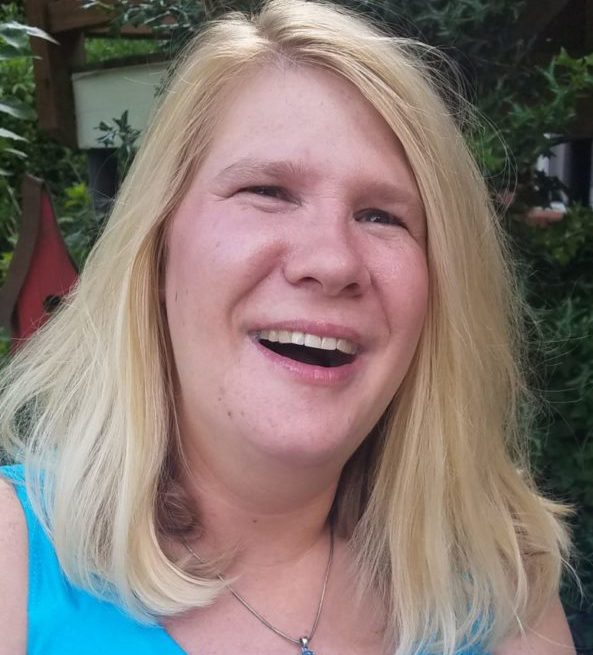
I’m Kylie Moore, a 35-year-old from Roswell, Georgia, living with Cerebral Palsy. I’ve dedicated my career to advocating for the disability community, creating self-advocacy programs, and serving on boards. I founded the Ambassador Program at AADD, received the Tom Miller National Advocacy Award in 2020, and now advise Arts InCommunity. When not teaching, I can be found watching the Georgia Bulldogs or my beloved New England Patriots play football or participating in wheelchair sports.

